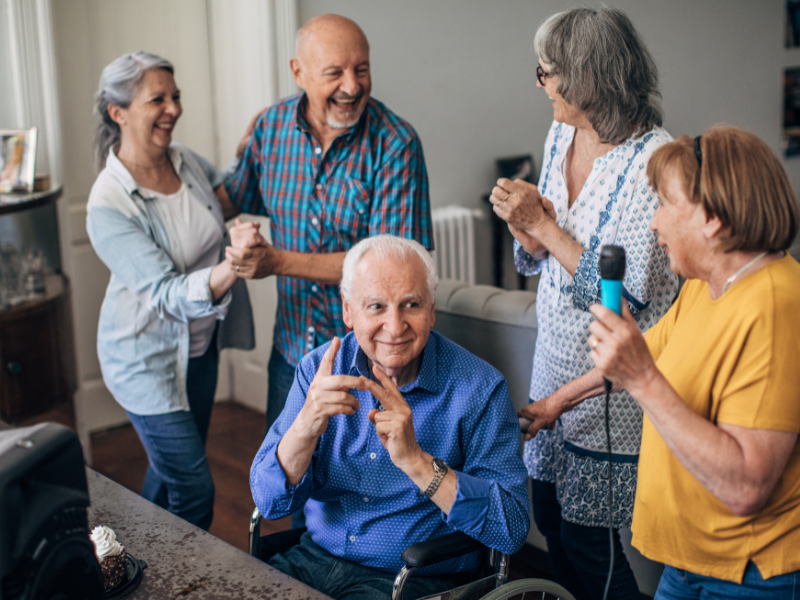Can music help people with Parkinson’s?

Music therapy and music learning are having a profound impact on the life and rehabilitation of people suffering from Parkinson’s disease. It is important to understand the difference between music therapy and music learning because sometimes they either look very similar, or one leads seamlessly into the other.
Music therapy is a music based intervention for a therapeutic outcome, it is very individualised and based on the background and clinical needs of the patient. Music learning is the, often highly structured, approach to learning how to play, create and understand music. Music learning tends to follow a set of steps which music teachers can then individualise to each student’s interests and ways of learning.
In the case of Derick, he is doing a bit of both. He is using music to ease the symptoms of his Parkinson’s disease as well as methodically improve his co-ordination and rhythm through learning to play piano.
For Parkinson’s sufferers, the need to consistently work with rhythm is very high, as the disease itself seems to strip away the consistency to which rhythmic information travels through the body.
“Music can help us stay focused on a particular activity, encourage rhythmic movements, or increase our enthusiasm with a stronger beat or faster pace.”
Free Easter campaign download with posters and social tiles to help students understand the value of music learning.
What if you could advocate for music education without adding more work to your already packed schedule?
Engaging in musical activities offers profound benefits for our brains, enhancing various cognitive functions and emotional well-being.
While there can only be one winner of the BBB Music Teacher Award, we also recognize the outstanding efforts of our 2025 Runner-Up, Ruby Mensforth—a teacher whose dedication to fostering a love of music has left a lasting impact on her students.
Playing an instrument or singing in a choir isn’t just fun—it’s great for brain health too. A recent study found that people with musical experience have stronger memory and thinking skills than those without.
For many music teachers, March means concert season, assessment planning, and advocating for the importance of music education as budgets and schedules for next year take shape.
We know that speaking up for music in schools can feel overwhelming—but you don’t have to do it alone.
If you've ever conducted or played in an ensemble, you’ve likely felt it—that moment when everything clicks, the music soars, and your group performs at a level beyond anything you thought possible.
The World Economic Forum's Future of Jobs Report 2025 highlights the critical skills that will define the workforce of tomorrow.
A recent study in Ear and Hearing investigated how aging and hearing loss influence music perception, focusing on melody and timbre discrimination.
A new study in the Journal of Neuroscience reveals that our brains start processing rhythm as early as 27 weeks into pregnancy.
The 2025 Celebrate to Advocate Calendar is your go-to guide for making advocacy effortless this year!
A recent study from Waseda University has uncovered that when individuals listen to music, their heart rates synchronize, reflecting a unified physiological response.
A groundbreaking study in Nature Human Behaviour has revealed a fascinating genetic connection between musical rhythm skills and language-related traits, including dyslexia.
Recent research from the Georgia Institute of Technology has unveiled compelling insights into how music affects learning, memory, and emotions.
A recent study from Aarhus University reveals that while older adults can remember familiar music as well as younger individuals, their brains engage differently during the process.
Take our free, 60 second quiz and maximize your advocacy impact by discovering your advocacy style and knowledge gaps.
Thank you for a wonderful 2024! Here’s a little gift from BBBB to you.
Music has always been a go-to for lifting our spirits, but did you know classical music might take it a step further by actually helping treat depression?



















